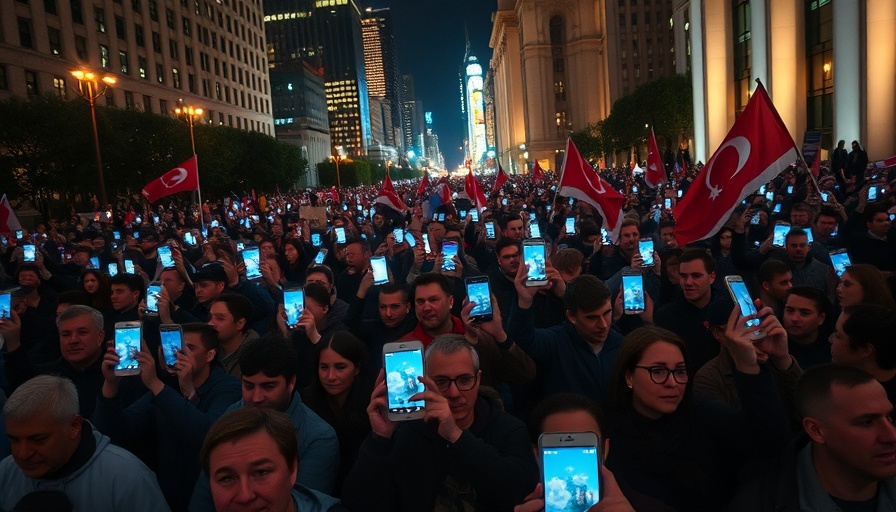
Understanding the Crackdown on Social Media in Turkey
In a move that sent shockwaves across Turkey, authorities arrested 37 individuals for posting "provocative" content on social media. This crackdown follows the high-profile arrest of Istanbul Mayor Ekrem Imamoglu, a prominent figure in Turkish politics and a significant challenger to President Recep Tayyip Erdogan. Analysts are raising alarms about possible implications for democracy in Turkey, especially as tensions flare among citizens.
Protests Erupt in Response to Arrests
Following Imamoglu's contentious apprehension, which was part of wider corruption investigations, hundreds of university students marched in Istanbul to voice their dissent against the government's actions. The protests, occurring despite a four-day ban on demonstrations, underscore growing public frustration and concern for civil liberties.
The International Reaction: Concerns Over Democracy
Global leaders have expressed distress regarding the escalating situation. German Chancellor Olaf Scholz labeled Imamoglu's arrest a "very bad sign" for Turkey's democratic integrity and its relations with the European Union. His comments resonate with many who fear that the government’s actions are undermining democratic principles in favor of authoritarian control.
Social Media: A New Battlefield for Expression
The crackdown on social media is a stark example of the changing landscape for free speech in Turkey. Officials have revealed they are investigating 261 accounts suspected of inciting public unrest and have already detained individuals linked to 62 of these accounts operated from abroad. Interior Minister Ali Yerlikaya, in a statement, emphasized the authorities’ determination to maintain public order, yet critics argue these moves only suppress dissenting voices.
The Political Landscape: What It Means Going Forward
Imamoglu’s arrest comes just as he was expected to be nominated as the opposition's presidential candidate. This timing raises questions about the motives behind these legal actions, with many viewing it as a politically charged move by Erdogan to silence a competing voice. As local elections last year indicated waning support for Erdogan's ruling party, these developments could set a precedent for what is to come in Turkish politics.
Public Sentiment and Future Implications
The public's reaction to these developments suggests a growing desire for political plurality and a resistance to perceived authoritarianism. With the ongoing protests and international scrutiny, citizens are increasingly vocal about their demands for transparency, freedom of speech, and a re-evaluation of governance priorities.
Concluding Thoughts
The events unfolding in Turkey serve as a critical reminder of the fragility of democracy, especially in times of political unrest. For community stakeholders and citizens around the world, this situation calls for vigilance and support for civil liberties. Awareness and understanding of these issues are crucial as they shape the future narratives not only in Turkey but across various nations navigating similar struggles.
 Add Row
Add Row  Add
Add 






Write A Comment